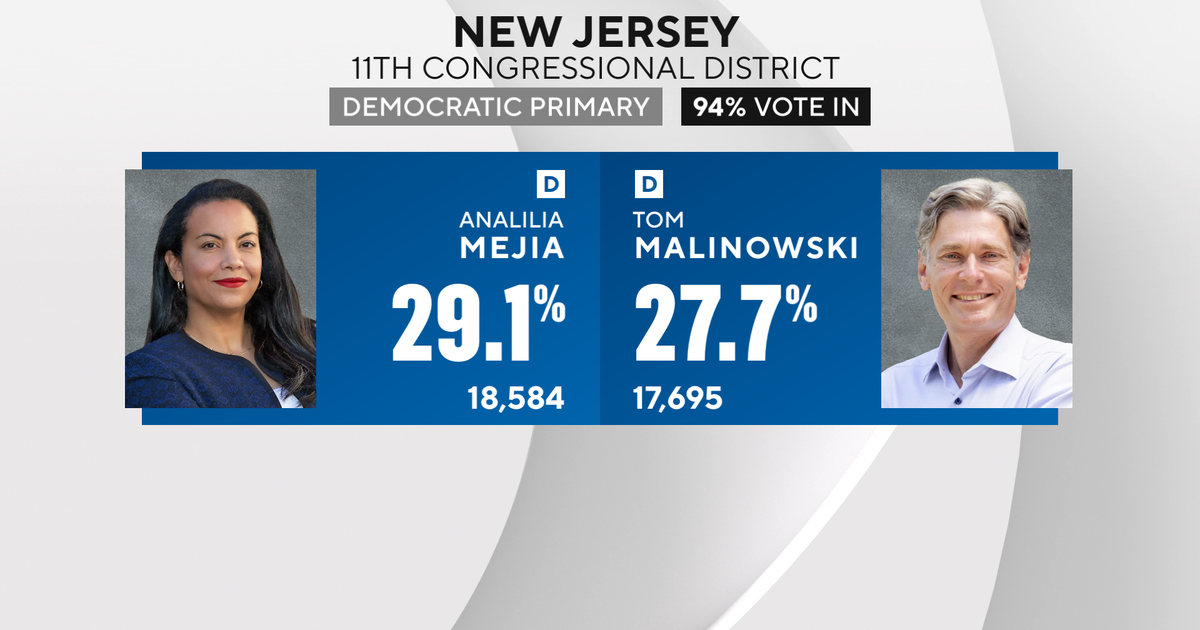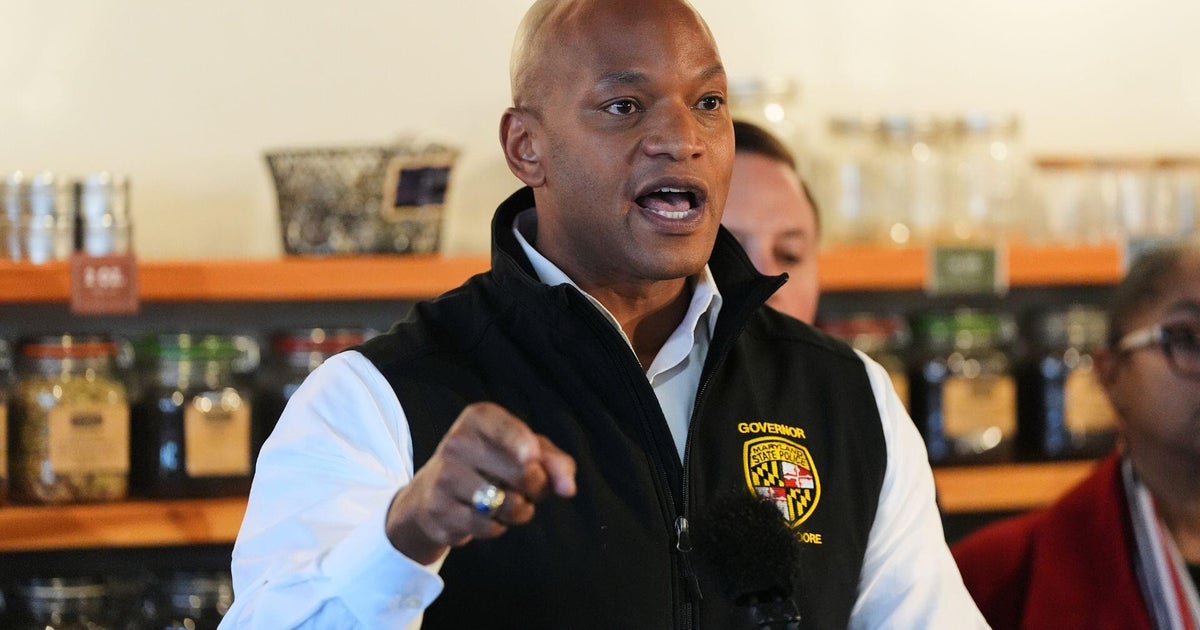FACT CHECK: Slippery Assertions In GOP Debate
WASHINGTON (AP) -- Texas Gov. Rick Perry declared in the Republican presidential debate Thursday night that he had never advocated turning Social Security over to the states. His denial was hard to fathom given his past rhetoric about the program.
"Let the states do it," he said last year, for example.
In the latest debate, Michele Bachmann misread presidential approval polls and denied making a statement that she actually did make just the week before, concerning a vaccine for girls. Mitt Romney denied supporting an Obama administration education program that he had praised.
But the most consequential exchange may have been over Social Security, and Perry's changing thoughts about it.
A careful parsing of Perry's words over the past months shows that his position on Social Security is not cut and dried. As he said in the debate, he believes that states should be allowed to exempt certain state or local government employees from the program, in favor of a state-approved alternative. That's already the reality in some places, including at least three Texas counties.
Far more radical is the idea of essentially dismantling Social Security as a federal entitlement and making states responsible for basic retirement security of all its citizens. He asserted in the debate, "We never said that we were going to move this back to the states."
But at times, Perry has sounded very much in favor of doing just that. In a November appearance on MSNBC, he said of Social Security, "Get it back to the states. Why is the federal government even in the pension program or the health care delivery program? Let the states do it."
What's clear is that Perry, in his book and afterward, trashed Social Security as a "Ponzi scheme" and "crumbling monument to the failure of the new deal" and has since backtracked on such harsh words, especially since rival Romney has come to the defense of the popular entitlement.
A look at some other statements in the Florida debate and how they compare with the facts.
BACHMANN: "President Obama has the lowest public approval ratings of any president in modern time."
THE FACTS: That's true, if you leave out Harry Truman, Richard Nixon, George W. Bush, Jimmy Carter, George H.W. Bush, Lyndon Johnson, Ronald Reagan, Bill Clinton and Gerald Ford. All of them at some point in their terms dipped lower than Obama's low point of 38 percent job approval, according to Gallup's comparison.
------
ROMNEY: "I don't support any particular program that he's describing," he said, disputing Perry's claim that Romney favors some of President Barack Obama's education initiatives, specifically the Race to the Top program.
THE FACTS: Romney was reluctant to tell Republican primary voters he doesn't hate every Obama policy. Romney does indeed support some of the specific policy changes encouraged by the Race to the Top program and said as much earlier in the week. Speaking in Miami on Wednesday, he praised the president's education secretary, Arne Duncan, for the program. And during the debate, Romney acknowledged supporting elements of the initiative, including teacher evaluations and charter schools.
------
ROMNEY: "I believe government is too big. It's gone from 27 percent of our economy in the years of JFK to 37 percent of our economy."
THE FACTS: Romney is including state and local government spending along with federal spending. His numbers are not far off, but most of the big increases came from Social Security and Medicare payments. Medicare started after Kennedy's presidency. Now it is one of the biggest government spending programs, and one of the most popular. Federal spending alone accounted for 23.8 percent of the gross domestic product last year and is expected to reach 25.3 percent this year.
------
PERRY: It's not the first time that Mitt has been wrong on some issues before. And the bottom line is, we never said that we were going to move this (Social Security) back to the states."
ROMNEY: "Well, it's different than what the governor put in his book just, what, six months (ago), and what you said in your interviews following the book. So I don't know. There's a Rick Perry out there (who) ... says that the federal government shouldn't be in the pension business, that it's unconstitutional. Unconstitutional and it should be returned to the states."
THE FACTS: In his book Perry heavily criticized Social Security, advocated states' rights and suggested federal entitlements were unconstitutional in general, but he never tied these beliefs together as succinctly as Romney claimed.
Even so, he danced close to branding Social Security as unconstitutional. He called Social Security the best example of a program that tosses "aside any respect for our founding principles of federalism." He also lamented: "If only the New Dealers had been kind enough to allow workers to make their own choice about whether to participate." And he said the program was introduced "at the expense of respect for the Constitution and limited government."
------
ROMNEY: Obama "addressed the United Nations in his inaugural address and chastised our friend, Israel, for building settlements, and said nothing about Hamas launching thousands of rockets into Israel."
THE FACTS: Obama in his 2009 address to the U.N. General Assembly by no means ignored the plight of Israelis.
Describing those who pay the "greatest price" for the conflict, Obama spoke of an Israeli girl in the town of Sderot "who closes her eyes in fear that a rocket will take her life in the middle of the night." Sderot borders the Gaza Strip and has been the target of hundreds of rockets fired into Israel from Hamas-controlled Gaza.
In the 2009 speech, Obama also did reject the "legitimacy" of Israeli settlement construction in lands the Palestinians want for their state, but those terms are largely reflective of American thinking over the last three-and-a-half decades. The Obama administration later vetoed a U.N. resolution that would have condemned Israel for the policy.
------
BACHMANN: "I didn't make that claim nor did I make that statement," she said when asked by a moderator if she stood by her comment that the HPV vaccine against cervical cancer was "potentially dangerous."
THE FACTS: Bachmann can't escape the tape. Bachmann used that exact phrase during the last debate when she criticized Perry for trying to order pre-teen girls to get the vaccine in Texas. "Little girls who have a negative reaction to this potentially dangerous drug don't get a mulligan. They don't get a do-over," Bachmann said then. Bachmann has tried to distance herself from remarks she made after the debate linking the vaccine to mental retardation -- a claim debunked by scientists. She said then and now she was relaying the story of another mother whose daughter had the shot.
(© Copyright 2011 The Associated Press. All Rights Reserved. This material may not be published, broadcast, rewritten or redistributed.)







